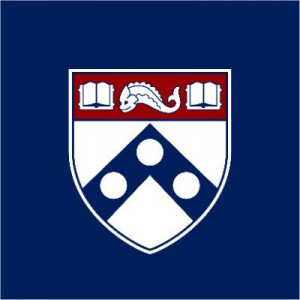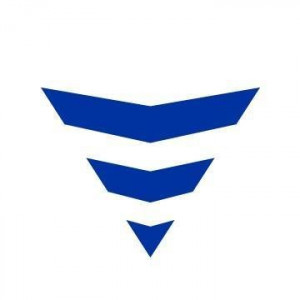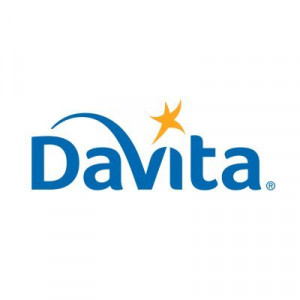Description
Penn Medicine is dedicated to our tripartite mission of providing the highest level of care to patients, conducting innovative research, and educating future leaders in the field of medicine. Working for this leading academic medical center means collaboration with top clinical, technical and business professionals across all disciplines.
Today at Penn Medicine, someone will make a breakthrough. Someone will heal a heart, deliver hopeful news, and give comfort and reassurance. Our employees shape our future each day. Are you living your life's work?
General Summary Statement
Provides comprehensive, quality nursing care through application of the nursing process. Adheres to Nursing Policies and Procedures and Organizational Goals and Objectives.
Essential Duties and Responsibilities
Clinical Practice
- Provides age appropriate care for the population served. Gives consideration to growth & developmental phase of life, to age related factors such as thermal regulation, nutrition, medication administration, nutrition, safety and functional needs of the patient.
- Uses appropriate resources for patients with special needs such as language barriers, sensory problems, altered cognition, cultural and religious needs.
- Ensures attention to patient’s physical, spiritual and emotional well being.
- Demonstrates competency in assessment skills (Includes admission and shift assessments).
- Performs pain assessments and intervenes to optimally meet patient’s needs for comfort.
- Plans clinical care based on patient’s needs and uses available resources.
- Performs clinical care in accordance with policy and procedure.
- Performs peripheral venipuncture and peripheral and central vascular access care according to policy & procedure.
- Evaluates outcomes of nursing interventions and takes appropriate actions to move patient toward reaching goals of care.
- Identifies situations that warrant patient rescue and takes appropriate action, e.g. Rapid Response or Code Blue/Pink.
- Adheres to the 5 rights of medication administration and uses the Medication Administration Check (MAK) system per policy and procedure.
- Integrates principles of infection control & infection prevention into practice.
- Adheres to aseptic technique as appropriate.
- Uses resources and references for reviewing policies and procedures, medications, and clinical information.
- Prioritizes and organizes work effectively within assigned shift.
- Demonstrates proficiency in arrhythmia interpretation and intervention.
- Administers appropriate medications and infusions as ordered. Demonstrates current knowledge of cardiac pharmacology.
- Collaborates with physicians/physicians assistants/advance practice nurses about the care and treatment of the telemetry patient and initiation or discontinuation of telemetry monitoring.
- Demonstrates understanding of use and functionality of central station monitors, transport monitors, emergency cart monitors, passive displays and telemetry transmitters.
- Adheres to Core Measures in the nursing management of telemetry, medical and surgical patients.
- Promotes restoration of function to optimal level at discharge by implementing surgical nursing measures.
Communication
- Uses effective communication during hand-offs. (e.g. Shift report, transfer report, etc).
- Organizes information into a meaningful format, such as SBAR.
- Delegates appropriately to unlicensed personnel and team members.
- Communicates patient care information to the interdisciplinary care team.
- Provides patient and family education in a manner that is understood and gives the patient and family handouts, brochures and resources that can be taken home for future reference.
Documentation
- Documents patient care in an accurate, professional and timely manner using the electronic medical record, MAK, and paper documentation forms according to policy and procedure.
- Documents patient care that is relevant to patient’s diagnosis, problems and reflects patient’s status.
- Signs, dates, and times rhythm strips to validate rhythm interpretation once per shift and when a significant change in rhythm is determined.
Professional Role Development
- Develops own nursing knowledge via practice, observation, professional literature, networking and attending continuing education programs.
- Promotes best practice by demonstrating a commitment to quality patient care and the profession of nursing.
- Promotes innovation and creativity in the practice environment.
- Serves as a preceptor and mentor for new employees.
- Mentors student nurses.
- Accepts constructive feedback about performance or behaviors and shows evidence of change.
- Demonstrates verbal and writing skills that are appropriate for healthcare communication.
- Adheres to the Department of Nursing Dress Code.
Department of Nursing and Organization Support
- Attends assigned committee meetings and contributes to the committees.
- Communicates support of organizational values and strategies.
- Supports the following organizational programs: Magnet® , Joint Commission Disease Specific Certification, Nursing Councils, and integrates their standards into clinical practice.
- Reviews nursing quality data, e.g. NDNQI and identifies how to apply best practice into own practice and mentor others towards meeting quality target goals.
Departmental Support
- Maintains equipment in working order. Uses equipment appropriately, follows Department policies for equipment and supply use and maintenance.
- Performs assigned duties to maintain unit in a state of survey readiness and maintain quality initiatives. For example, quality control measures, emergency equipment checks, medication preparation area cleanliness, etc.
- Adheres to unit programs to support patient care such as maintaining a quiet environment, hourly patient rounds, customer service, etc.
- Attends staff meetings on a regular basis.
- Keeps patient care area and work environment neat and organized.
Education Training and Experience
Bachelors of Science in Nursing (BSN) is required.
Experience preferred, however training and specialty specific education programs are provided during orientation, and must be successfully completed as scheduled.
Basic computer skills: keyboard, mouse use. Ability to complete data entry on clinical documentation screens. Ability to use email and internet. Ability to successfully complete on the job training for CCH computer programs. Ability to practice critical thinking and organizational skills. Ability to speak, read, write and understand English.
Licensure/Certification
Current Pennsylvania RN License.
CPR certification required. ACLS certification required, or must complete within 12 months of hire. Certification in clinical specialty is preferred.
Must meet specialty specific competency requirements.
Dysrhythmia Interpretation
We believe that the best care for our patients starts with the best care for our employees. Our employee benefits programs help our employees get healthy and stay healthy. We offer a comprehensive compensation and benefits program that includes one of the finest prepaid tuition assistance programs in the region. Penn Medicine employees are actively engaged and committed to our mission. Together we will continue to make medical advances that help people live longer, healthier lives.
Live Your Life's Work
We are an Equal Opportunity and Affirmative Action employer. Candidates are considered for employment without regard to race, ethnicity, color, sex, sexual orientation, gender identity, religion, national origin, ancestry, age, disability, marital status, familial status, genetic information, domestic or sexual violence victim status, citizenship status, military status, status as a protected veteran or any other status protected by applicable law.









